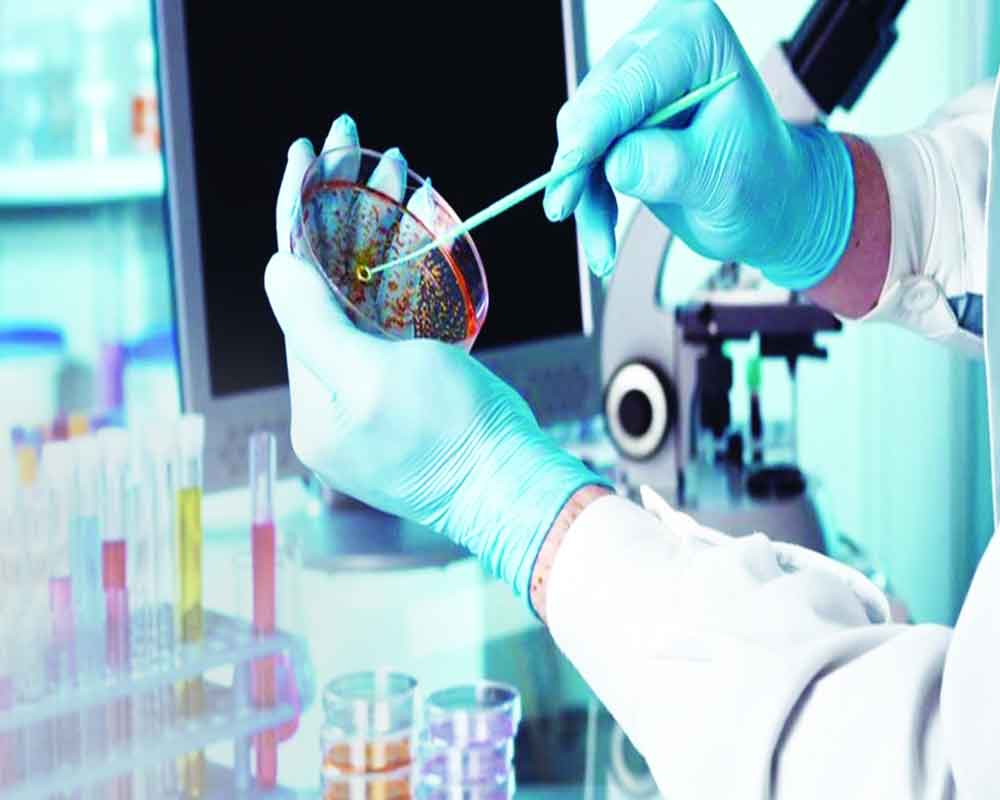Microbiologists have enormous career opportunities. Prof Mike Williamson tells you how students can make it a lucrative career option
Microbiology is the study of microbes — organisms that are too small to see without a microscope. Normally these are single celled organisms, and include bacteria, archaea, viruses, yeasts, and algae.
Our ability to understand and manipulate microbes is growing exponentially. For example, gene sequencing technology is opening up new opportunities all the time.
Microbiology and health
Microbiology is big news at the moment, and microbiologists are much in demand for healthcare. Over the last year, Governments have woken up to the idea that we know very little about viruses, and that viruses have an enormous economic impact on us all. Many scientists have been warning that influenza could produce a worse pandemic than COVID-19, and that we need better basic science as well as better practical measures for protection and defence against viruses. Both of these come from microbiology.
Antibiotic resistance in bacteria is continually growing in importance. The World Health Organisation has declared antimicrobial resistance to be one of the top 10 global public health threats to humanity. Imagine not wanting to risk going into a hospital for fear of catching an infection there: this could be a reality very soon unless we can come up with better ways of killing bacteria, and of handling antibiotics in a way that does not allow bacteria to develop resistance.
The bacteria that live in our gut have a critical importance on our health. There are many opportunities for microbiologists here: understanding the microbial communities and how they are perturbed by antibiotics; developing probiotic and prebiotic foods; and new approaches to a range of diseases including obesity, diabetes and rheumatoid arthritis.Microbes are important not just for human health. They are also critical in animal health, and in the growth and health of plants.
Biotechnology
Many microbes are beneficial. We use microbes to produce drugs, nutrients, and essential chemicals, such as feedstuffs for cosmetics and textiles. Microbes are used to make cheese, yoghurt, bread, beer, and many processed foods. Increasingly, scientists are able to manipulate genes and biochemical pathways in microbes, which allows us to convert microbes into factories for the production of a wide range of chemicals. This constitutes biotechnology.
Biotechnology is increasingly being seen as the 21st century industrial revolution. It will be essential for producing enough food to feed the planet; for reducing plastic waste, and for creating environmentally friendly and recyclable materials. A successful biotechnology industry needs to bring together skills in microbiology, fermentation, engineering, and downstream processing — an exciting young interdisciplinary industry. Microbes are the most versatile organisms on earth. They can grow at extreme pH values, at high temperatures, and high salinities. They can survive high pressures, and transport through space. We are learning how to use them to clean up pollution, combat climate change, and generate energy from waste.
Careers
Microbiologists have enormous career opportunities. Most microbiologists study microbiology at university, or related areas such as biochemistry. You can study basic science: biochemical pathways, microbial growth and cell division, and virology. Or you can come at it from a more applied direction: recognising infectious bacteria in a more medically focussed degree, or chemical engineering and fermentation technology. After a university degree, some students will go on to specialised Masters courses, for example in antimicrobial resistance or biotechnology. Others will go straight into careers, where you are typically working as part of an interdisciplinary team, with targets as different as medical care, agriculture, bioremediation, biotechnology, and global warming.
The pharmaceutical industry in India is growing rapidly, and has enormous international potential. Microbiologists are increasingly in demand to advise policy makers, for example about public health, or the use of antibiotics in agriculture. And also of course to explain policy to the general public.
The writer is Head of the Department of Molecular Biology and Biotechnology at the University of Sheffield, UK


























